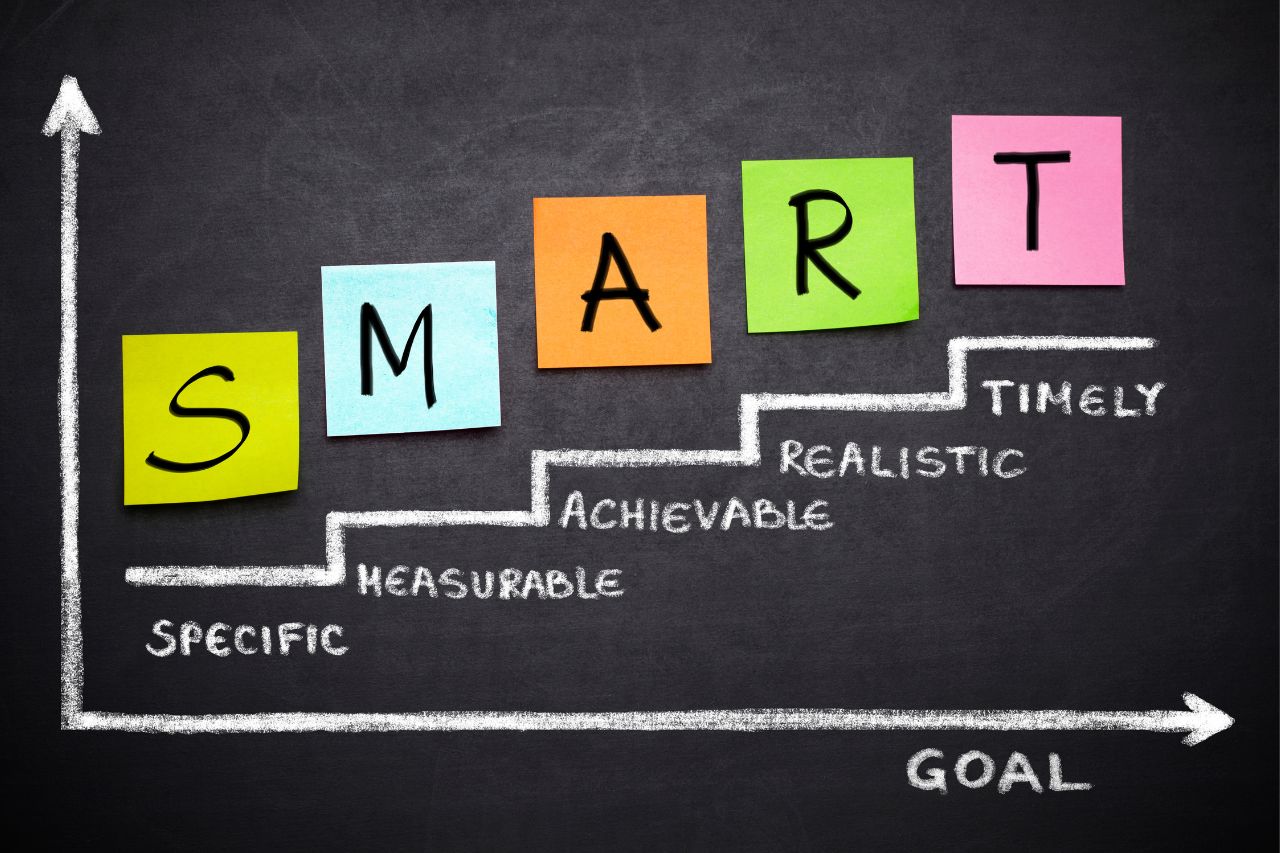Creating a goal is easy. You can decide on a goal and follow it for a day or two with all the motivation you have. With each passing day, you realize setting goals is manageable, but focusing on goals is difficult. Unfortunately, the obstacles in your way decrease your motivation, and you feel the goal is not worth your efforts.
This is almost everyone’s story. We drift away from our goals or have difficulty focusing on them. We hold our distractions, work environment, and people responsible for our inability to stick to our goals. However, we know our lack of focus is the real culprit.
We outline ways on how to improve focus to help you escape the endless loop of making and breaking goals.
1: Find Your Motivation

People say that actions drive motivation and not the other way around. Therefore, it is crucial to do something instead of doing nothing.
It may be true for mundane tasks, but motivation is necessary if you wish to have a dream and genuinely focus on goals. Our actions are manifestations of our thoughts and intentions.
Therefore, motivations yield positive actions. Without reason, every task is meaningless, and it is easy to drop a pointless task. To focus on your goals, ask yourself why you have those goals.
What has motivated you to set this goal? Is your motivation positive, or does it stem from envy or competition? These cathartic questions help you understand your plans and regain lost focus.
There are some ways that you can motivate yourself to focus on the goals you set. First, establishing incentives for yourself motivates you to achieve targets and get your hands on the prize.
Second, your achievements give you the optimism to enjoy more victory moments. Third, although fear is not advisable to motivate, it sometimes works.
For example, the fear of catching a particular disease if you do not maintain a strict diet is motivation driven by fear.
2: Create SMART Goals

One reason for a losing focus on our goals is the fundamental flaw in our plans. We create unrealistic or far-fetched goals that even we cannot meet.
Such practices reduce focus and inculcate negative perceptions about the effectiveness goals altogether. A simple solution is to set SMART goals.
SMART stands for specific, measurable, achievable, relevant, and time, and it represents the attributes our goals should have. It is easier to focus on specific goals, but ambiguous goals are impractical and unachievable.
Instead, set a purpose that outlines your plan. For example, being healthy might sound like a goal, but it has to be more precise. Exercising for an hour every day is a specific goal.
The time frame you have set for exercising has made it measurable. It means you have completed your daily target when you exercise for an hour.
Realistic expectations make goals achievable. So make sure you commit to what you can deliver and do what you can achieve instead of putting rhetoric like “aim for the stars.”
For instance, if you promise to complete 50 pending tasks at work in a day, you are in for disappointment because of your unachievable goal.
The fourth and fifth aspects are relevancy and time-binding your goals, respectively. Your goals should apply to your ultimate plans and resonate with your inner self.
Restricting goals in time ensures a maximum focus on your goals and prevents drifting away. Invest in a sophisticated SMART goal planner to set goals, review their progress, and achieve them without drifting away.
3: Divide Your Goals into Smaller Ones

A huge, messy pile of tasks on your desk waiting to complete will get you tired even before you start. Stacked, organized, smaller piles of the same amount of files will seem like a walk in the park.
The same happens with our goals. Dividing long-term goals into small steps makes it easier to focus on them. To maintain focus on your goals, divide them into smaller goals or milestones.
Make a plan for how you intend to accomplish each short-term goal. The key is mentioned earlier, i.e., to make your goals SMART. This practice not only improves focus but also ensures completion.
4: Write and Revisit Your Goals

Among the best ways to improve your focus on goals, writing them down is the quickest and easiest one. Psychology recommends this practice as writing something down makes it a part of our brain’s long-term memory.
Writing goals helps us remember them and prevents the diversion of focus. Back in the day, people used sticky notes to write goals at work and at home.
Standard practice was to place these notes in visible or frequently visited places to ensure memory recall and stay updated with their progress.
Although this is a great idea, it may be less effective for people constantly on the go. There can always be more places to stick your notes.
A modern solution to writing goals on notes is to have planning software. Goal planning with an online life planner is an excellent way to set goals you can revisit anytime and anywhere.
The best thing about such online planners is that they combine your goals with your journals so you can express your thoughts and your dreams. Undoubtedly, the old-school sticky notes lacked this convenience.
5: Make a Plan

A clear roadmap for any task is excellent for maintaining focus. When you develop an action plan, you outline small steps to complete your goals.
This practice provides a clear direction to follow and ensures you stay upright. The Backward Goals method works well in helping you make a plan. In this method, you backtrack your goals to the first step.
For example, you must complete work on time if you wish to improve your productivity. However, to complete tasks, you must first organize them according to their priority or impact.
For this, you need a productivity planner to achieve your goal. Thus, the first step to improving productivity is to have a productivity planner.
6: Improve Willpower

Being motivated to start a goal is one thing, but having the “push” to pursue your dreams, even if conditions appear unfavorable, is another. Motivation is the “why” of your goals.
Everything else that makes you accomplish your goal is willpower. Motivation provides the drive to set a goal, but willpower makes you focus on it.
Following your goals is easy when conditions are favorable. It is easy to run a kilometer when it is nice and breezy outside. Planning business is fun when all the analytics are in your favor.
However, when circumstances change, you lose motivation. It is cold outside, but you are warm in your blanket. Your motivation to jog and be fit surrenders as your mind tricks you into thinking that one day’s gap will not matter much.
However, your willpower makes you get out and fulfill your daily goal. Exercising daily and practicing mindfulness and meditation are necessary to improve willpower.
Dedicate 30 minutes to yourself and stretch a bit. You do not have to engage in heavy weightlifting to enhance your will. A little jog is enough.
Meditate and let your mind relax and unwind. Mindfulness is an excellent way of calming down your mind and thoughts. It also helps improve control over thoughts and actions.
7: Eliminate Distractions

Countless people complain of distractions being the major hurdle in completing their goals at work. The endless activity around you makes it almost impossible to focus on goals.
Often, some people have pending tasks in front of them while they are using their phone, searching for “how to improve focus.” But, interestingly, the answer is not on the phone but outside it.
Distractions are real and can double the time you spend achieving your goal. However, they are easy to eliminate. All you need is some minor lifestyle, routine changes, and willpower.
The first step is to identify distractions. Observe your surroundings and your actions. See what makes you divert your focus from your task. It is a good idea to write down all distractions.
The next step is to eliminate distractions. The most significant distraction is the mobile phone. A study concluded that smartphones distract 53.7 percent of respondents.
Therefore, keep your phone silent or far away from your desk when you sit at work. Allow your willpower to take over and fight the temptation to check the phone for “just one second.”
If you find noise the culprit, choose a quieter spot for work or turn off the TV while working. Noise-cancellation headphones work well if you are working in a public place or a shared workspace.
By having a set routine, you can rid yourself of distractions. A routine lets you create the environment needed for work and everything else. In addition, it allows your mind to focus on goals better since it is wired to identify the time for a particular activity.
8: Create a Conducive Environment

Your environment encompasses everything from your surroundings to your social circle. After all, the company we keep significantly influences our thought process.
For example, you will have difficulty focusing on your goal of better work productivity when your friends at work are all slacking. A noisy environment will also hinder your productivity.
Unsurprisingly, 80 percent of people are distracted by chatty coworkers. When you set goals, create conducive environments that help you focus on goals.
Engage with like-minded people to find motivation and positive progress. Avoid the company of those who demotivate you or bring you down.
Additionally, you can create a friendly work environment free from distractions, equipped with everything you may need. Ensure clean and refreshing surroundings.
Clear the clutter on your work desk and organize your files beforehand to avoid investing time in doing so when it is time to work.
9: Manage Your Time
Effective time management is one of the robust ways to improve your focus. Allowing yourself sufficient time for everything lets your brain maintain focus on the task at hand.
It prevents distractions or your thoughts from wavering. Proper time management is the key to success in everything you do. The first step to managing time is to prioritize your tasks.
Focus on the job that needs to be completed first or has the highest impact. These are called High Impact Tasks (HIT). A focus planner helps you focus on goals by letting you prioritize your work, track your progress, and track time as per the famous Pomodoro Technique.
It also includes a journal so that you can add entries there. The Pomodoro Technique is a renowned time management technique that allows enough room for breaks so you can resume tasks with a fresh mind and enhance productivity.
With this technique, you focus on goals for 25 minutes, and when the timer rings, take a five-minute break. After four Pomodoro, you take a gap of 15 - 30 minutes.
The Pomodoro Technique is an effective and a robust way to improve your focus. All the brief breaks relax the mind and body from all the stress and concentration. The extended break lets you stretch and unwind to continue your task with better attention.
10: Ensure a Consistent Routine

Having a consistent routine is an underrated way to improve your focus. Unfortunately, many people skip this part since it does not directly affect how you achieve your goals.
However, it is crucial if you wish to focus on goals and improve your overall lifestyle. Setting a consistent time and sequence for waking up, breakfast, work, exercise, and relaxation allows your body and mind to prepare and perform accordingly.
In addition, it reduces stress and anxiety and helps regulate your hormones. The tip is to start with small steps.
Make a plan to wake up at the same time on a daily basis. Focus on this task only for about a week. Once you have achieved a consistent wake-up time, continue by adding exercise at the same time every day.
Add a set time and duration for work. Thus, gradually you can have a consistent routine that will facilitate your ambition to achieve your goal.
11: Stop Multitasking

People often mention multitasking as their strength. In reality, multitasking hampers focus and productivity and creates “attention residue.”
An attention residue is a bit of our focus left behind in the previous task when we switch to the next one. Instead of having fragments of your focus divided into seven tasks, combining all seven pieces into a single one is better.
Focus on one thing at a time. First, complete the task at hand using the Pomodoro technique mentioned above. Later, move on to the next one.
Remember to take breaks between tasks to allow your brain the time to let go of the information related to the completed job and absorb and grasp the information ahead.
12: Track Your Progress

Staying updated with your or your teammate’s progress redirects focus on goals. Measuring progress helps you analyze where you are with your work.
It allows you to ask yourself and your team some essential questions, such as why progress has been slow or how much time they need to complete a task.
Software that helps track time and progress are best at setting goals and measuring the time to complete them. Because of the significance of time tracking and task management software,
it is expected that the task management software market will increase at a rate of 13.7 percent in 2023. Regular updates on your goals provide motivation and accountability, improving focus and enhancing performance.
Work planners are a great help since they let you set your goals at work and focus on them. Whether you wish to see how far you have progressed or check the performance of your team members, work planners do it all.
13: Do Not Forget to Appreciate

In all the race of setting goals, keeping a focus on goals, and achieving them, we often forget the little bliss of appreciation. In our efforts for success, we ignore the importance of stopping and patting ourselves on the back for how far we have come. It might seem insignificant, but slight gestures of self-appreciation go a long way.
Allow yourself to review your progress and treat yourself with something you love to eat or do as a token of appreciation and motivation.
Such gestures provide the much-needed boost to continue on your path, as completing milestones of goals is not a minor feat. You deserve applause for being consistent and focused.
The TakeAway
Setting goals may seem challenging, but maintaining focus on goals certainly is. However, many people need help with focusing on the task at hand.
We have outlined the best ways to improve your focus to accomplish more. Besides following our advice, it is essential to have the help of planning software such as Week Plan to help you set, track, and achieve your goals.
At Week Plan, we want everyone to fulfill their goals and become more successful, so we offer countless features to make and follow a plan. Reach out to us to learn more about our planners and how you can benefit from them.

More Posts
10 Tips for Making the Most of Your Monthly Self Care
Creating a self-care routine is essential for managing stress and maintaining both mental and physical health. By prioritizing wellness practices, individuals can nurture their well-being effectively. Contrary to popular belief, self-care isn't about...
7 Tech Hacks for Web & Graphic Designers Working from Home
Technology has made life easy. Thanks to the advancements, there are a lot of tools and gadgets to facilitate processes and make the hardest jobs as easy as they could be. Working from...
3 Best Time Management Trainings Online For 2023
If you think you are not good at effective time management, you must invest in online time management training. Mastering time management starts with understanding the right fundamentals and key concepts that form...
How to improve your productivity through Calendar Blocking?
Every time at the end of the day you sit down and realize that your to-do list has been increasing rather than decreasing. It is one of the worst feelings to see your...
